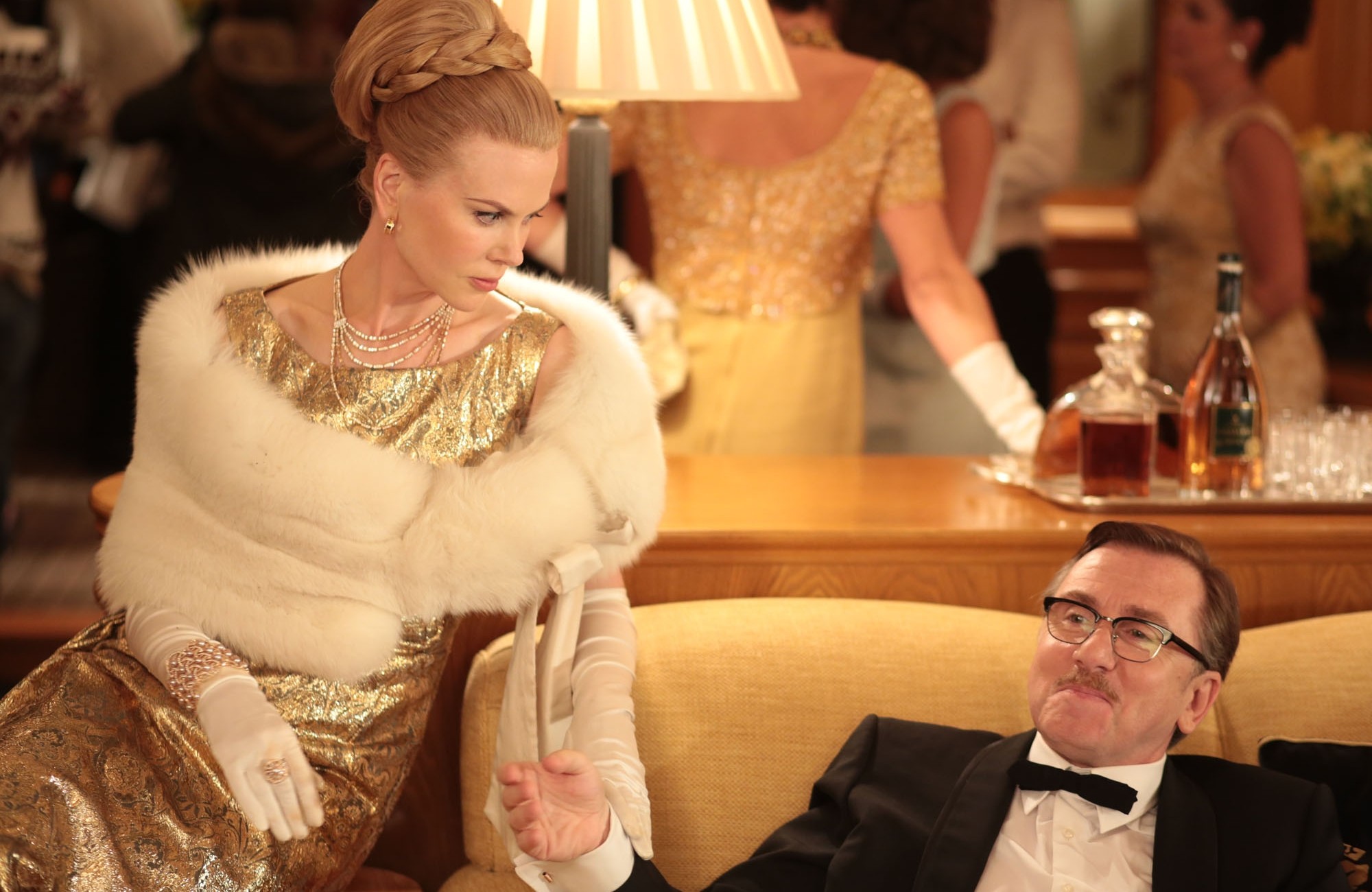Universally panned by critics and booed by the Cannes audience that were, ahem, graced with its world premier. Despite ostensibly being about the life of Grace Kelly, one of the biggest movie stars of all time – who married Prince Rainier III of Monaco in 1956 to become Grace, Princess of Monaco, this is really just a short, albeit eventful, chapter of her life and centers around the politically charged cauldron of intrigue that the principality found itself in with Charles de Gaulle of France, who threatened to extinguish the nation’s sovereignty if he did not get his way (according to the film at any rate). Likely, this political context strongly influenced the negative reaction in Cannes, a mere 42km or so down the French Riviera from Monaco.
It is interesting – detailing an event in history that was certainly new to me, and indeed presenting one of those moments when you think to yourself, ‘how come I’ve never heard about this before?’. Well, part of the reason for this is that huge swathes of its ‘history’ are fabrications. The personal goings on are of course speculation and invention, with a few events which did occur but a decade earlier than shown, in fact the Royal Family of Monaco have suggested people simply obliterate the lot of it in a press release about the movie, but whilst artistic license with unknown material is to be expected the liberties taken with the facts are simply too egregious to be ignored – like showing de Gaulle being politically outmanoeuvred by Grace by her contriving to have him show up for an event that he never in reality actually attended, and portraying the French as almost pantomime bad guys in order to have the audience sympathise with the protagonists without properly explaining the debate at hand. It’s a shame, Tim Roth as Rainier and Nicole Kidman as Kelly are good to watch, the story flows fairly naturally with the idolisation of the central heroine feeling appropriate rather than gratuitous, although director Olivier Dahan certainly stumbles and falls on more than one occasion.
An effort has been made to mimic to a degree the cinematography of the films Kelly herself starred in – even using obvious studio screens for the backgrounds as Kidman drives around the winding precipitous upland roads of Monaco. Indeed, there is a nod in the direction of what oddly stands out as one of the most memorable scenes in ‘To Catch a Thief’ (55) as we watch Hitchcock (played by Roger Ashton-Griffiths) being driven up to a cliff edge overlooking the whole of the city and, by extension, the entire nation – in the movie Cary Grant and Grace Kelly drive up to the same spot and it’s memorable for both the view and the moment, but it’s also very obvious this scene takes place within a studio and then suddenly, when Grant gets out of the car and walks to the boot, it cuts to location footage with, presumably, body doubles, before once again cutting back to the studio when he gets back into the car. It’s good to know even one of the world’s most famous and revered filmmakers wasn’t afraid to fudge it when he had to …
The film also fits in nicely to this era in the life of Hitchcock and the stories told in both ‘Hitchcock‘ and ‘The Girl‘, in fact chronologically this should be watched in between the two if you intend to see all three. The ending continues to cause problems – the very end bizarrely feels more like that of ‘The Return of the King’ (03), but during a climatic speech from Princess Grace the camera zooms in way, way too much on her face. We can see globules of mascara collecting, the scar from Nicole Kidman’s nose job and the insides of her nostrils in high definition, her bloodshot eyes focused by collecting tears – it’s about as far removed from a classical edit as you can get and it does detract from the moment but, having said that, it does make even the very glamorous and beautiful Nicole Kidman herself look, well, the very opposite of that – perhaps it was an attempt at vulnerability, and to humanise the glamour? Perhaps …
With Frank Langella, Parker Posey and Derek Jacobi in support.
